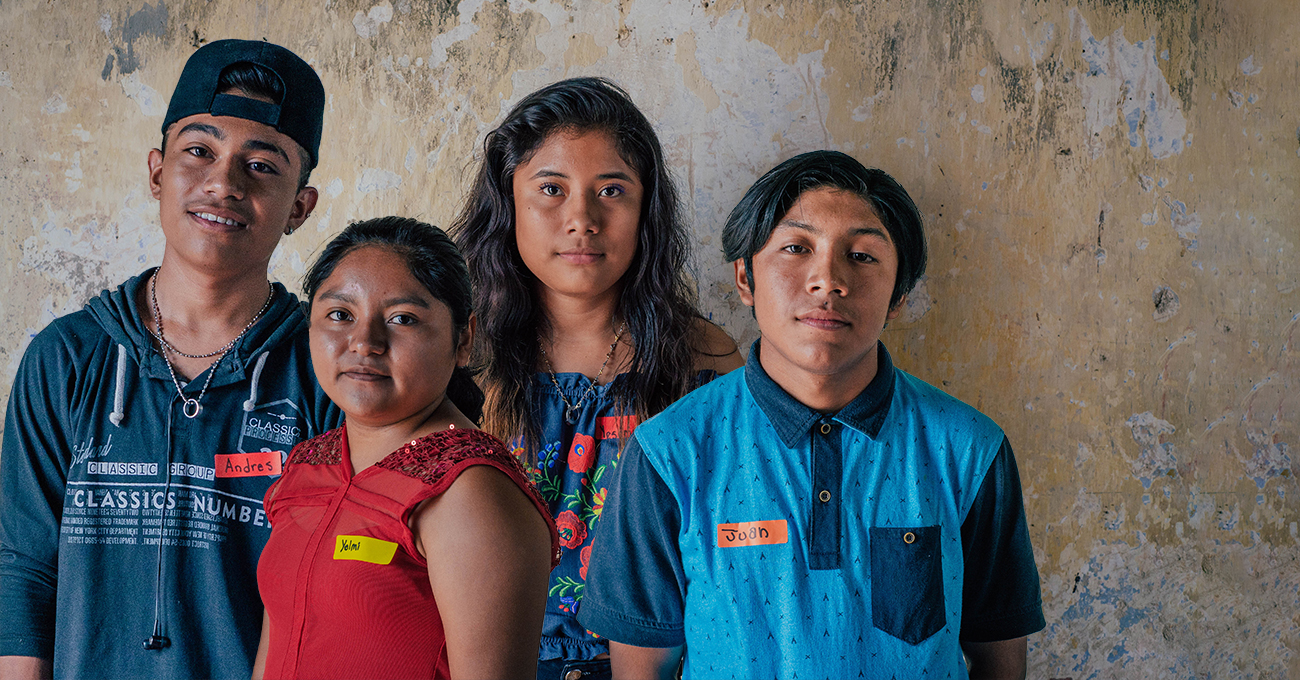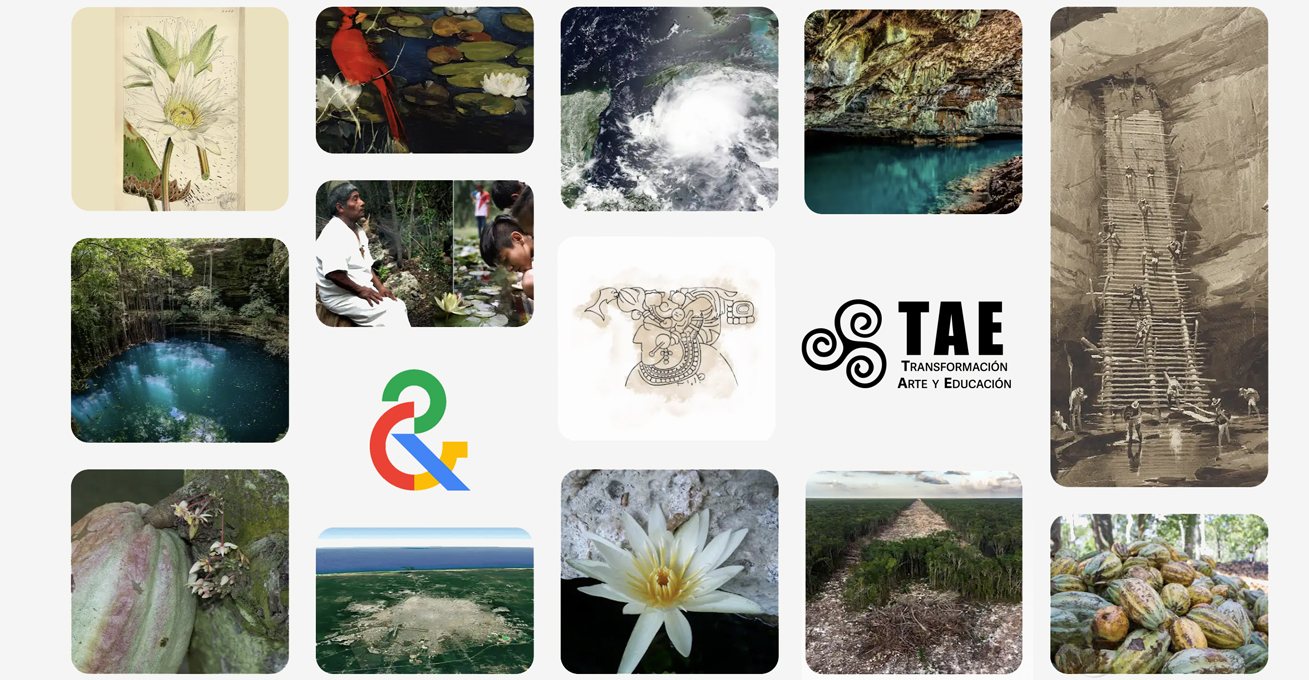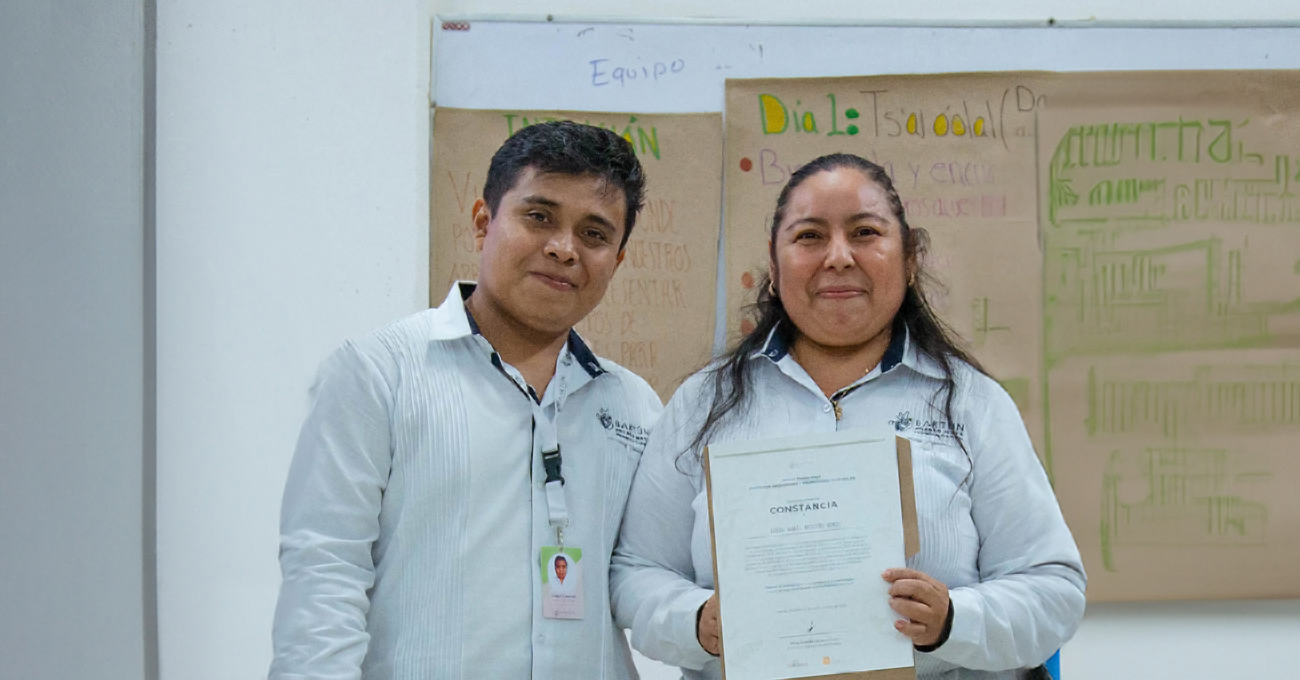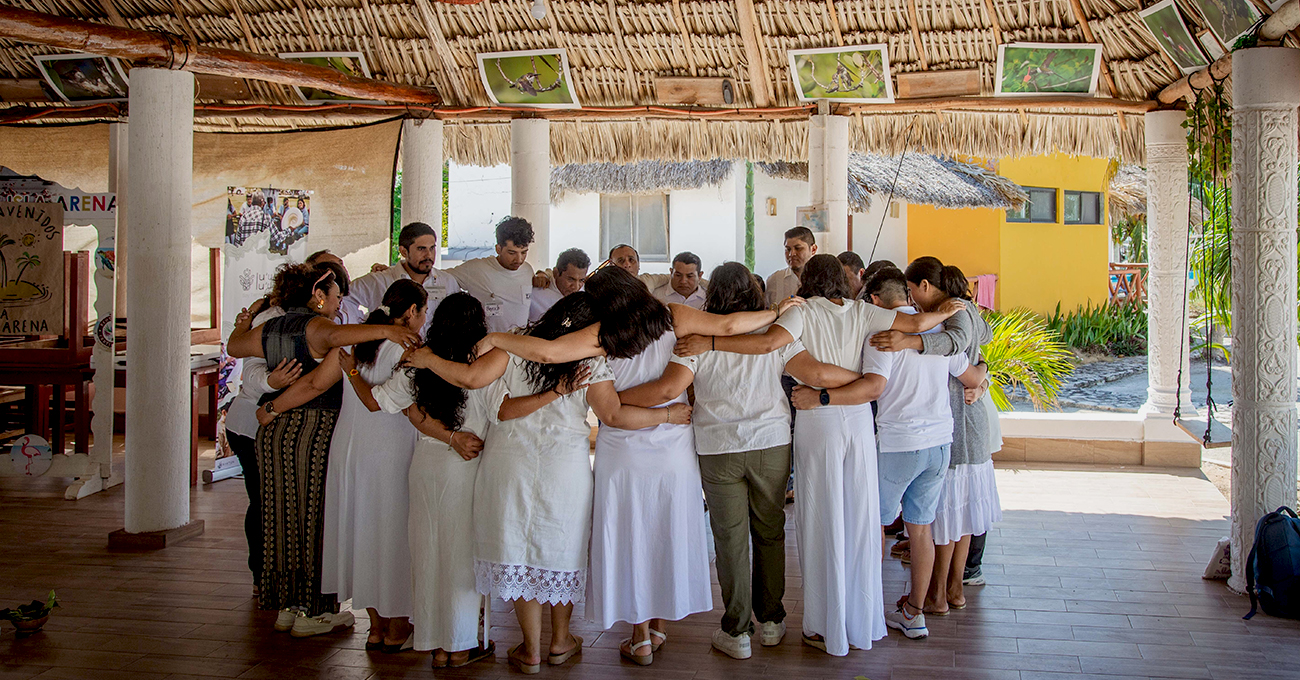
CIES (Comparative and International Education Society) is an internationally prestigious organization founded in 1956. Among its academic activities, it organizes an annual conference, which will be held this year in Miami, FL. The theme of this conference is “THE POWER OF PROTEST”. The director of Baktún, Pueblo Maya, Susana Cavazos (TAE), will present a presentation about identity and cultural leadership development among Mayan youth.
From an interdisciplinary perspective, CIES members study a variety of educational challenges. Baktún, Pueblo Maya will present the presentation “Collective Action to Empower Youth in the Yucatán Peninsula.”
In its more than ten years of work in communities, Baktún has trained young people, intending to make them reconnect and value their culture. Thus, Baktn strengthens their identity and contributes to linking the past, present, and future of an ancient culture. When young people value their past and their current ways of life, they are better able to assimilate the present and project an integrated, sustainable, and dignified future.
The training path for Young Mayan cultural mediators and promoters begins with learning and applying the methodology of Pedagogical and Cultural Mediation dia. Through this, they develop cognitive and socio-emotional competencies, which allow them to create and facilitate spaces for dialogue and reflection in the communities. This way, they learn to listen to children, adults, and grandparents and map their tangible and intangible cultural heritage. This methodology allows them to recognise and value what seemed invisible to their eyes and represents the essence of their culture.
With the acquisition and use of these skills, they can carry out cultural projects that allow them to put into practice their creative, management, and community leadership abilities. In this process, fundamental elements for cultural transmission, such as language, traditions, knowledge, and practices, are rescued, while learning skills and technological tools are integrated.
This path of personal and cultural development counteracts the challenges of the current context, where cultural erosion has affected the socio-emotional integrity and sense of belonging of young people daily and dizzyingly.
The distancing from their cultural capital, which, among other social problems, has impacted the mental health of these young people, is an issue to consider. We know that we are talking about a population whose suicide rate is one of the highest in the country.
Considering the invaluable wealth of the Mayan civilization and its territorial and historical extension, it seems critical to address the question: in what way can the vast cultural and natural heritage of the Peninsula contribute to a sustainable economy that generates material and cultural benefits, with an impact on the quality of life of these young people and their communities? Today, there are just under a million speakers of the Mayan language, and 98.7% of the speakers are in Yucatan (2 out of every ten inhabitants speak the language); this allows us to get an idea of how large the Mayan population is, although the language use is in decline.
The purpose of our presentation at CIES is to share and highlight the relevance of the comprehensive development of young people as an alternative to address a need that has global reach. It is a reality that indigenous communities worldwide - North America, Australia, Africa and Asia - are experiencing similar cultural challenges. The sociocultural implications of suppressing cultural identities and legacies are irreparable losses for humanity.
The potential of an educational vision that transcends traditional models and that is situated within a cultural and economic system is an alternative to reverse this trend.



